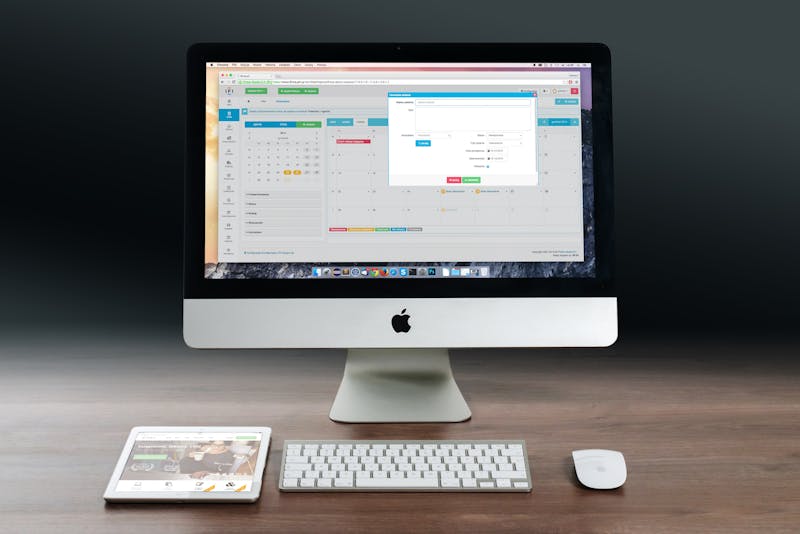A business is only as solid as the accountant serving it. As most companies must adopt and adapt to new technologies or lose their competitive edge, so must accounting professionals.
Accounting requirements have expanded to include innovative technology along with traditional practices. Charlotte, NC accountants must be incredibly skilled to keep pace with the small, mid-sized, and large industries that breathe life and prosperity into the city.
Employers looking to hire accounting professionals and entrepreneurs searching for business accounting firms are counting on accounting professionals to help them with everything from saving on taxes to assisting with cloud computing.
What should aspiring accountants make sure they know and highlight on their resumes? Below, you’ll find the top seven types of software skills every accountant needs, every accounting firm is searching for, and every business owner should ensure their accounting firm possesses.
1. Excel
Even with tech’s evolving role in accounting functions, tried-and-true Excel continues to top the list of most needed accounting skills. It’s still an essential and applicable tool, as not all businesses have caught up to current AI and automation levels.
Accountants need advanced knowledge beyond data entry. Today’s accountants should have a handle on Excel’s:
- Keyboard shortcuts
- Macros
- Complex formulation creation
- Data summarization via pivot tables
- Ability to manipulate data to forecast and solve complex problems
- Formula auditing
Excel spreadsheet mastery is a must. The ideal accountant should be able to analyze data and provide predictions for stakeholders.
2. Popular Bookkeeping Software
Accountants can best serve clients and employers when they are familiar with the specific software they use. There are many options, but accountants should gain experience with those more widely used, like QuickBooks (common among small and mid-sized companies), Sage Intacct (for mid-to-larger companies), and NetSuite (for large firms).
At a fundamental level, QuickBooks records transactions and helps a company create financial statements. However, it also offers advanced features for enhanced insights.
Some leveled-up skills include editing templates, filtering reports, creating vendor-specific transactions, and transaction memorization. Higher-evolved functions include deposits or advanced payments, job costing, receiving inventory, and evaluating inventory values.
3. ERP Systems
Enterprise Resource Planning systems, or ERP, support operations and processes, helping a business grow.
Companies can use ERP systems to allocate costs for various activities like labor, raw materials, and transportation. It allows for more accurate budgeting, cash flow management, operating costs, and cycle time reduction to gain an edge over the competition.
Oracle and SAP are two of the most widely used ERP systems. Accountants should research, attend webinars, and join online communities to learn more about various ERPs.
4. Cloud Computing
Accountants can expect more modernized and collaborative work environments. Cloud-based software helps bring teams and information together.
An accountant may need to help clients transition to cloud-based software for information sharing. Cloud computing allows a firm to improve its efficiency and flexibility.
Google Workspace and Microsoft 365 (including SharePoint and OneDrive) are increasingly popular ways to manage, store, and share information.
5. Tax Prep Software
Firms need help reporting and saving money at tax time. Accountants should familiarize themselves with popular tax software such as Thomas Reuters UltraTax or Drake Tax.
6. Analytical Software
Accountants should understand how to analyze large volumes of data for enhanced insights and decision-making. Software like Excel’s advanced functions, Power BI by Microsoft, and Tableau are key players in data visualization, reporting, and analysis. Business owners need an accountant who can add value to the client-accountant relationship with competitive modeling, forecasting, and insights.
7. Industry-Specific Software
The Charlotte area has some key industries that employ many and keep the city humming with life and wealth. Its top employers include those in the banking, health, manufacturing, restaurant, and construction industries. There’s no one-size-fits-all approach for the variety of accounting needs for these types of businesses.
Take the real estate market in Charlotte, for example. With all the city has to offer, real estate in the area is one of the fastest growing in the country, evolving to meet the demands of a flourishing population.
Accounting for real estate companies in Charlotte, NC, requires someone who understands the rules and regulations for realty. Advanced software can help an accountant better serve real estate client needs.
Another factor that sets the area apart from others is the construction industry. Charlotte must build to keep up with its growing population. Specialized construction accountants can, with the help of software, assist construction professionals with bookkeeping, job costing, prediction, inventory, and cash flow needs, among other things.
The Right Skills
Software helps accountants boost their efficiency and productivity. In turn, they stand to improve their output for their clients and employers, producing better, more timely, and accurate advice.
With too few college students majoring in accounting and too many seasoned professionals retiring, accountants are in demand more than ever. Those who can marry technical accounting skills with technology savvy can set themselves and their clients or employers up for a win-win.
Video
Infographic
A business’s strength relies on its accountant. As companies adopt new technologies to stay competitive, accountants must do the same. Discover the infographic outlining the seven software skills every accountant needs.






